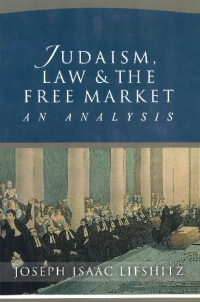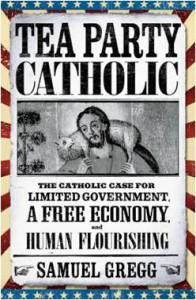August 23, 2013
August 19, 2013
Pay without Work: Is the Government Deal a Good One?
August 09, 2013
The McDouble and the Minimum Wage
August 09, 2013
Free Book: ‘Judaism, Law & The Free Market: An Analysis’
For a limited time, the Acton Book Shop is offering a book by rabbinical scholar Dr. Joseph Isaac Lifshitz for free: Judaism, Law & The Free Market: An Analysis. Acton released this title at an academic conference late last year, and in it, Lifshitz examines the Jewish treatment of themes such as property rights, social welfare, charity, generosity, competition, and concepts of order. Continue Reading...
August 08, 2013
Was Gordon Gekko Catholic?
Is greed really good? Does self-interest equal sin? Samuel Gregg takes on these questions at Aleteia.org, in an excerpt from his new book, Tea Party Catholic: the Catholic Case for Limited Government, a Free Economy and Human Flourishing. Continue Reading...
July 30, 2013
Can Faith Save Us? – Reflections on Lumen Fidei and Pope Francis
July 22, 2013
Detroit: A Collapse of Real Integrity
July 16, 2013
Jonathan Witt: ‘Memo to Tinseltown’
July 15, 2013
D.C.’s ‘Big Box’ Minimum Wage Hurts the Poor
July 03, 2013

